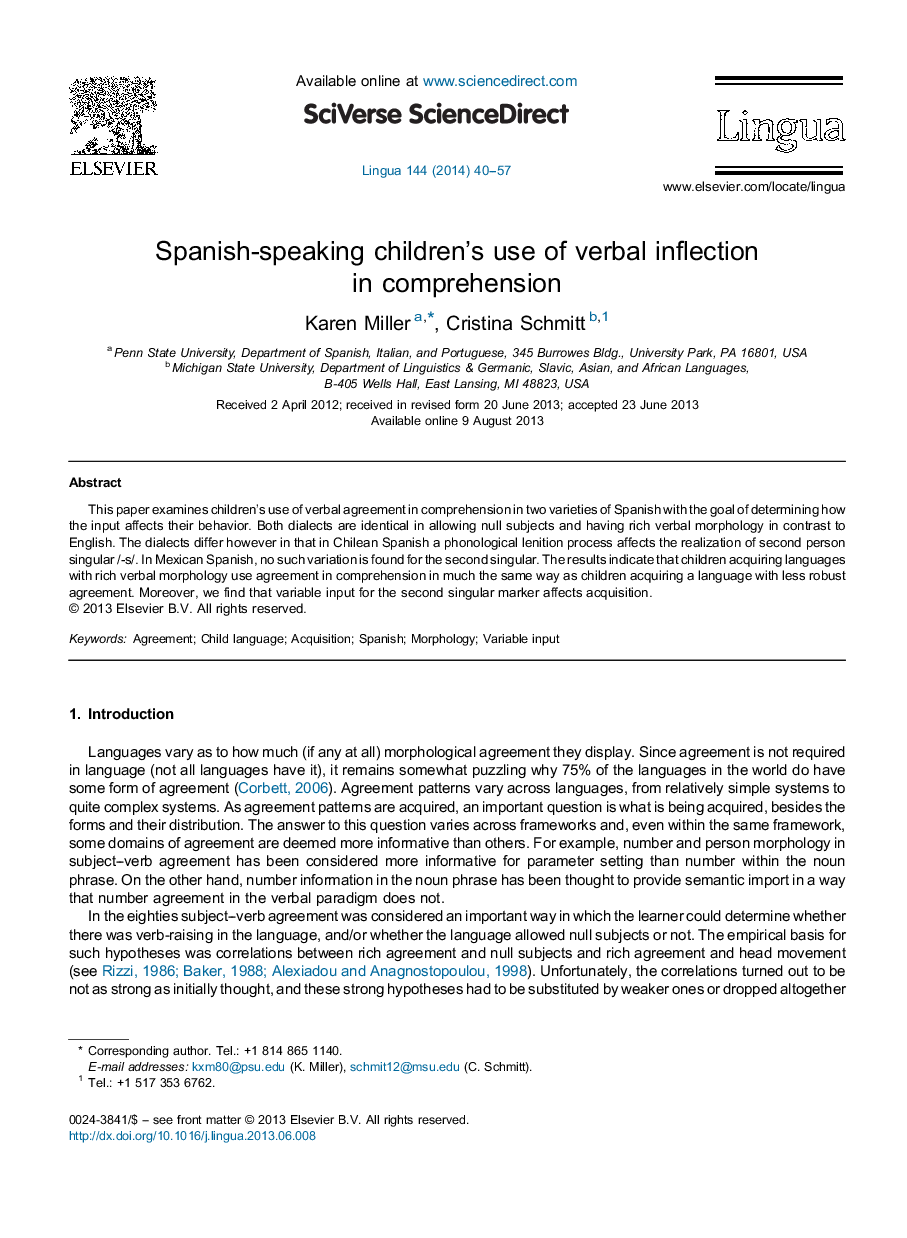| Article ID | Journal | Published Year | Pages | File Type |
|---|---|---|---|---|
| 935473 | Lingua | 2014 | 18 Pages |
•We examine Spanish-speaking children's use of verbal inflection in comprehension tasks.•We examine the effect of variable input on acquisition.•Children have difficulty using subject–verb agreement in comprehension in offline tasks regardless of whether the target language has rich or weak verbal morphology.•Variable input affects acquisition of grammatical morphology that appears variably in the input to children.•Variable input for the 2sg marker in Chilean Spanish affects children's acquisition of the marker.
This paper examines children's use of verbal agreement in comprehension in two varieties of Spanish with the goal of determining how the input affects their behavior. Both dialects are identical in allowing null subjects and having rich verbal morphology in contrast to English. The dialects differ however in that in Chilean Spanish a phonological lenition process affects the realization of second person singular /-s/. In Mexican Spanish, no such variation is found for the second singular. The results indicate that children acquiring languages with rich verbal morphology use agreement in comprehension in much the same way as children acquiring a language with less robust agreement. Moreover, we find that variable input for the second singular marker affects acquisition.
